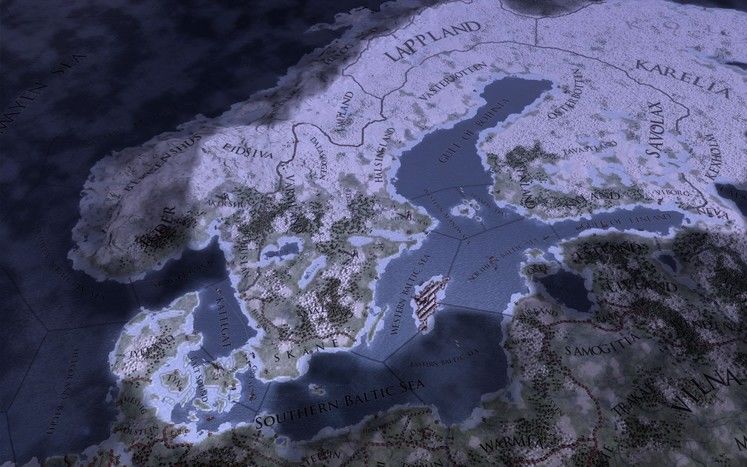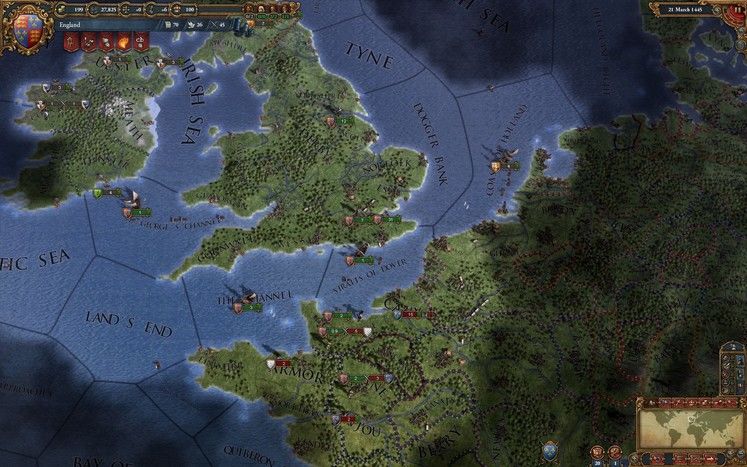To start with, we got a look at the new Trade Routes system. Much like the previous game you do have a number of merchants that you get each year, however instead of sending them to trade hubs, you send them to various nodes along trade routes instead. If you imagine how the supply map looked in Hearts of Iron 3, with the in and out going, except presented a whole lot better, you get the general idea. Anyway – you can place your merchants at key points along trade routes in order to divert money to your country, either by maintaining a trade office or building transit hubs, and you can also use light ships to direct trade to your ports as well. It’s a matter of trade power (based on several modifiers) and manipulating the routes (so keeping the money going in and stopping it going out further down the line).
 |
| Paradox are toying with the idea of letting you cross frozen rivers or sea areas like they were land |
The religion system was also on show… specifically Religious Unity, which is a new concept. It’s basically the percentage of your country that follows the same religion, and you get various bonuses and penalties depending on the value, and these apply to few areas of the game. The interface has been streamlined as well so that it’s easier to understand and easier to use. The higher the religious unity you have, the more papal influence you have, which allows you to influence the voting more for things like active cardinals and which nations are in power as far as religion goes.
Diplomacy also had an overhaul – there’s more visual feedback to the player in terms of presenting information about other nations, a CK2 opinion system so you can see how things are received, each country can have rivals and there are added positive and negative bonuses to relations. Another big thing was coalitions – targeted alliances that you will need certain technologies for in order to be able to enter in one, as it’s very much a mid-to-late game concept. There’ll also be Papal and Anti-Papal coalitions, for example, and you can also do things like enforce peace. There are also no longer any rebels as a separate thing; including supporting a country’s rebels has also been integrated into the diplomacy interface.
 |
| Looking pretty swish |
Apart from that though there’s really not a hell of a lot else to talk about right now – the military changes haven’t been implemented yet, and there wasn’t anything available on the multiplayer front… still very early days, I mean we’re talking about Q3/4 2013 here, again, we can’t help but wonder if they it announced too soon… like with Crusader Kings 2 though, Paradox Development Studio want to put a lot of care and attention into the game, and that starts with fan feedback. With the game playable, but not quite yet feature complete, that process starts now. Want to be involved in the creation of one of Paradox’s most anticipated sequels? Well keep an eye out, as you never know what will happen over the next year.
So far, so good then – the game looks pretty good, using the very best of Crusader Kings II’s engine, the seasons look really good as they change, for example. The whole world is available to play as, although the focus will be on Europe, given the name, although much like EU3 there will probably be themed or targeted expansions. Events wise some have been removed, but there are a lot more of them, and aren’t always tied to specific dates, but are context sensitive as well. Not a lot to see right now, but what little there is, is pretty exciting. Europa Universalis IV is due out on PC late 2013.
Most Anticipated Feature: Seeing what the rest of the game looks like.




